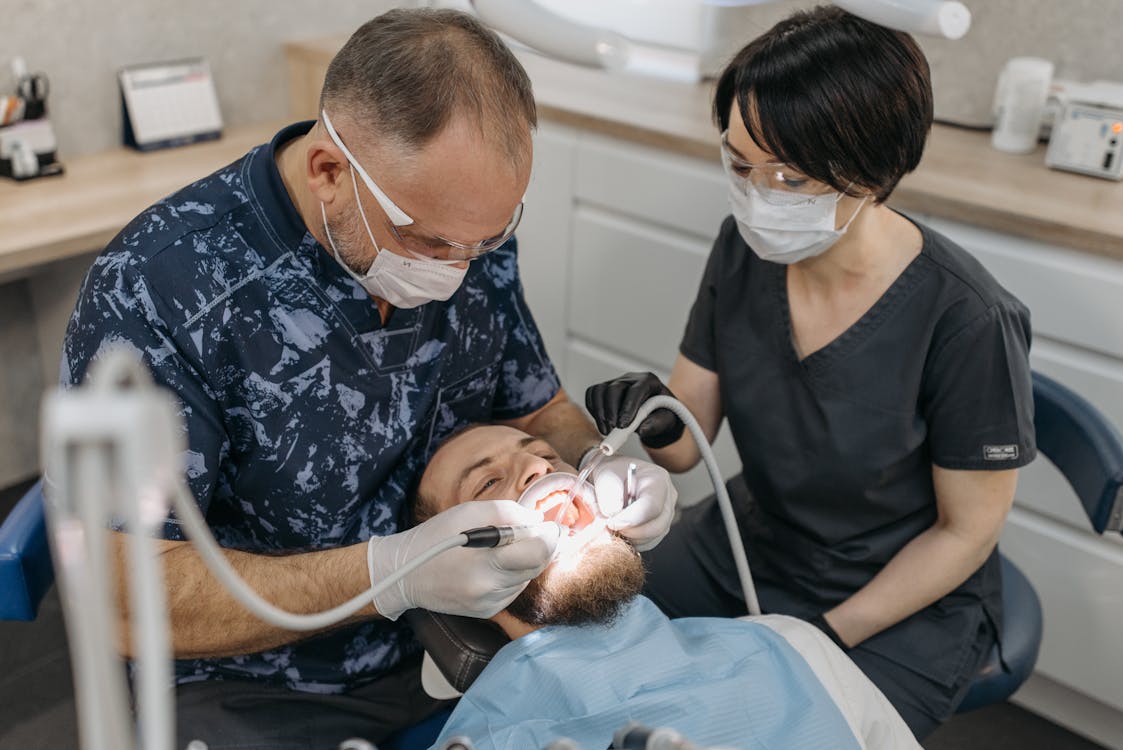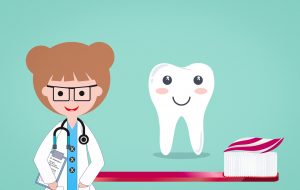How To Maintain Oral Hygiene At Home?

Oral hygiene is extremely important not only for your self-esteem but also for your health. Research has shown that people who develop cavities or gum disease are more likely to develop heart disease, tooth loss, stroke, Alzheimer’s Disease, and premature death than those who do not. Cleaning your teeth regularly can save you money on professional dental care. To keep up with your oral hygiene routine, follow these simple steps:
- Brushing your teeth
- Flossing
- Using mouthwash
- Proper dental care for children and adults with braces or other orthodontic devices
- Choosing the right toothbrush for you and your family’s needs
- Tips to avoid bad breath, including tongue scraping, chewing gum, and using a straw when drinking from a glass of water instead of directly from the cup or bottle
- Dental care for seniors
- The role of fluoride in oral hygiene
- Tips to improve your dental hygiene routine (i.e., scheduling regular appointments, avoiding sugary foods and drinks, etc.)
How To Maintain Oral Hygiene At Home?
1) Brushing your teeth:
Cleaning your teeth is essential for overall health and well-being, but it’s important that you use the right kind of toothbrush at the right time in order to get optimal benefits from brushing.
2) Flossing:
In addition, another key ingredient of good oral health is flossing regularly — every day or at least any occasion when eating food or beverages that may be caught between teeth. Flossing maintains the space between teeth to prevent plaque from building up and causing tooth decay or gum disease.
3) Using mouthwash:
Mouthwashes are also helpful for controlling bacteria in your mouth, which can lead to bad breath, cavities, gingivitis, and other diseases of the mouth.
4) Proper dental care for children and adults with braces or other orthodontic devices:
A child who has just gotten braces should brush his or her teeth twice per day after each meal with a soft bristle brush. They should clean around their brackets carefully to avoid trapping food particles against the wire where they could damage the tooth surface below the bracket. Dentists recommend replacing this brush every three months as well as flossing once per day.
5) Choosing the right toothbrush for you and your family’s needs:
Personal oral-care habits vary, so it is important to find a toothbrush that you and your whole family like to use. Here are some factors to consider: size and shape of the toothbrush head; bristle type (soft or medium or hard); comfort grip; action of the bristles (manual or powered).
6) Tips to avoid bad breath, including tongue scraping, chewing gum, and using a straw when drinking from a glass of water instead of directly from the cup or bottle:
A dry mouth can encourage bacteria growth leading to bad breath. Chewing sugarless gum can help stimulate saliva production, which naturally washes away food particles and reduces the risk of tooth decay. It is also a good idea to rinse your mouth using a straw whenever possible as this will reduce contact with your teeth.
7) Dental care for seniors:
The best way to maintain oral hygiene at this stage in life is through regular checkups and an updated cleaning every six months. If a person’s dental health begins to decline due to issues such as receding gums or bone loss, it can be harder for them to take care of their own oral health going forward.
8) The role of fluoride in oral hygiene:
Fluoride makes your enamel stronger by flowing into the tiny grooves in your enamel and forming a barrier against the acids that break it down. The added fluoride strengthens teeth and makes them more resistant to decay.
9) Tips to improve your dental hygiene routine (i.e., scheduling regular appointments, avoiding sugary foods and drinks, etc.):
Although it may be hard to make time for a trip to the dentist during busy days, brushing at least twice per day is necessary not only for oral health but overall well-being too. A visit every six months will help catch any problems early before they become serious issues. Remember: sugar free gum and sugarless candy do not cause tooth decay! Be cautious when eating these types of food; eat them in moderation.
Brush in the morning and in the evening Choose an effective brushing technique Brush each tooth thoroughly Avoid brushing too long Rinse after brushing Floss daily Brush tongue when possible Drink water throughout the day
And most importantly of all… visit your dentist regularly!
If you keep up with these oral hygiene tips, you may be able to develop a set of healthy teeth that will last you for the rest of your life. However, if not properly maintained, your teeth can become susceptible to cavities and gum diseases.




